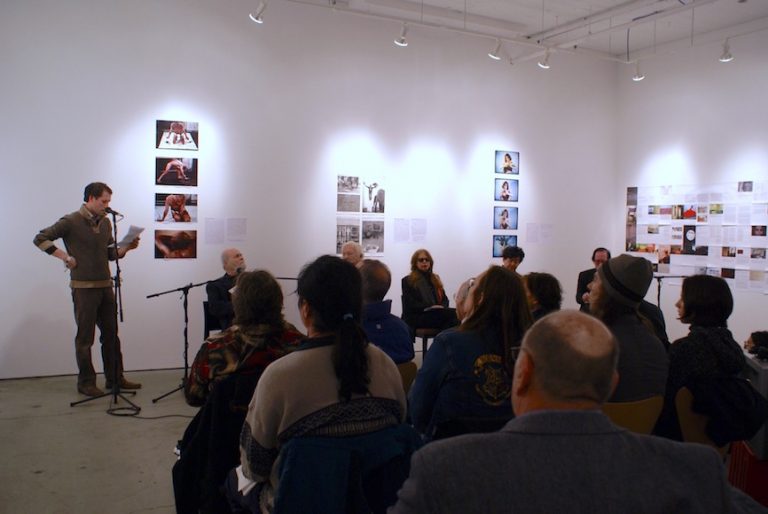
A panel discussion with Arakawa + Gins, Arthur C. Danto, Don Idhe and others on the problematics of cultural production after Duchamp
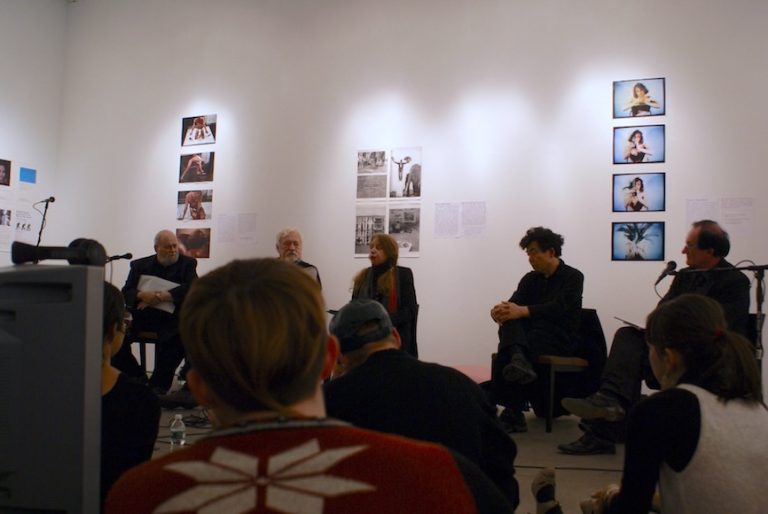
A panel discussion with Arakawa + Gins, Arthur C. Danto, Don Idhe and others on the problematics of cultural production after Duchamp
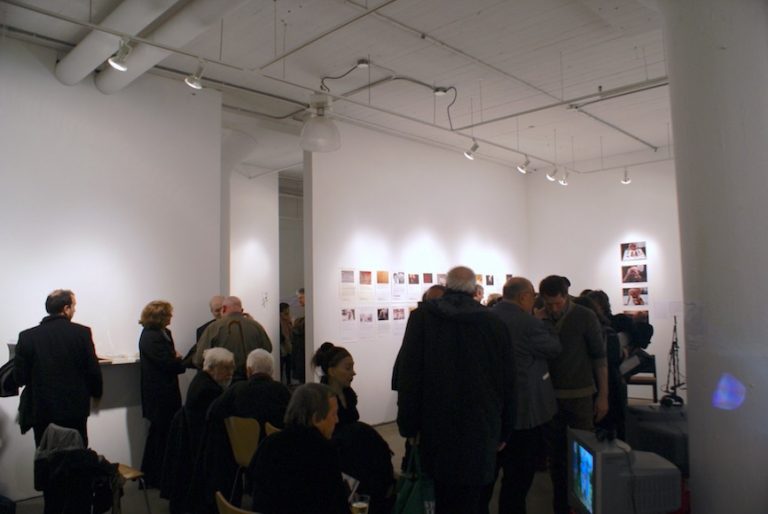
A panel discussion with Arakawa + Gins, Arthur C. Danto, Don Idhe and others on the problematics of cultural production after Duchamp
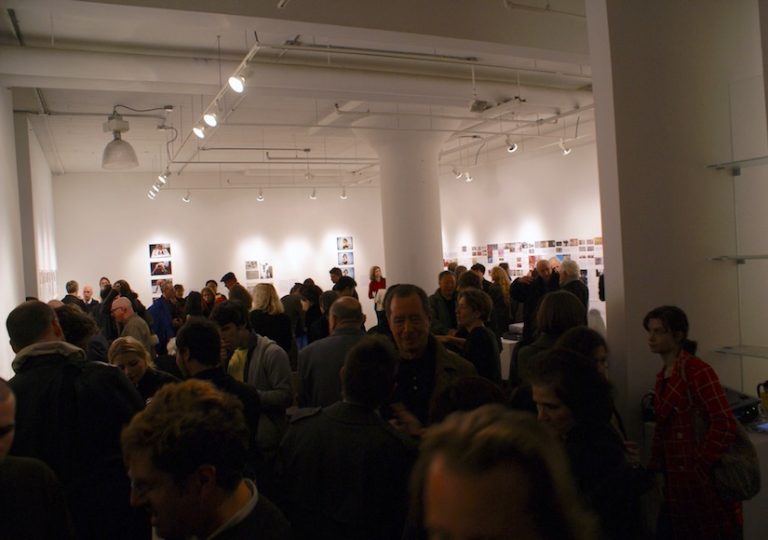
A panel discussion with Arakawa + Gins, Arthur C. Danto, Don Idhe and others on the problematics of cultural production after Duchamp
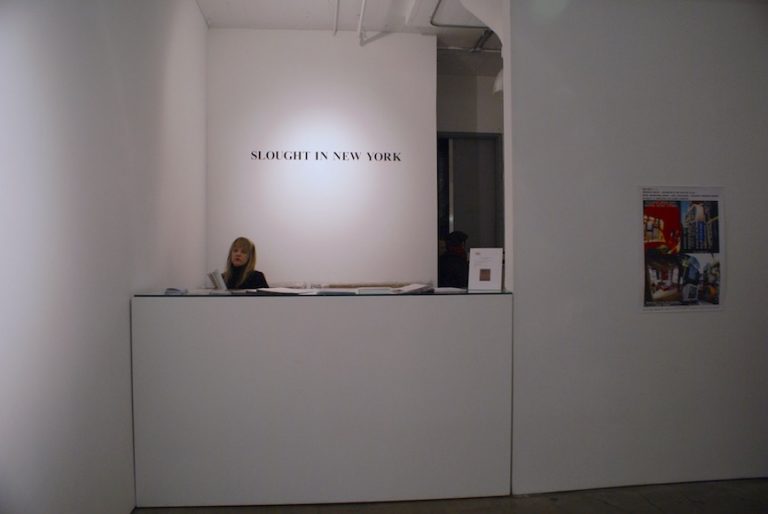
Installation view
In conjunction with opening of Slought in New York at ZONE: Chelsea Center for the Arts,
“Should Art Abolish Art?”
Thursday, November 29th, 7-8pm
A conversation with Arakawa + Gins, Arthur C. Danto, Don Idhe and others on the problematics of cultural production after Duchamp.
Moderated by Jean-Michel Rabate and Aaron Levy; Introduced by Osvaldo Romberg
Should Art Abolish Art?
7-8pm, November 29, 2007
Since 1963, artists-architects-poets Arakawa and Madeline Gins(b. 1936/1941) have worked in collaboration to produce visionary, boundary-defying art and architecture. Their seminal work, The Mechanism of Meaning, has been exhibited widely throughout the world. A sequel to that, To Not To Die, appeared in 1987. As a means of financing the design and construction of works of procedural architecture that draw on The Mechanism of Meaning, extending its theoretical implications into the environment, Arakawa and Gins founded the Architectural Body Research Foundation. The Foundation actively collaborates with leading practitioners in a wide-range of disciplines including, but not limited to, experimental biology, neuroscience, quantum physics, experimental phenomenology, and medicine. Architectural projects have included residences (Reversible Destiny Houses – Mitaka; Bioscleave House – East Hampton, Long Island; Shidami Resource Recycling Model House), parks (Site of Reversible Destiny – Yoro) and plans for housing complexes and neighborhoods (Isle of Reversible Destiny – Venice and Isle of Reversible Destiny-Fukuoka, Sensorium City, Tokyo). The Second International Conference on the work of Arakawa and Gins will take place at Slought Foundation and the University of Pennsylvania from April 6-8, 2007 (here for more information). Responding to A + G’s two recent works of theory, Architectural Body (University of Alabama Press, 2002) and Making Dying Illegal (Roof Books, 2006), philosopher Jean-Jacques Lecercle declared this pair to be the successor philosophers to Marx and Engels.
Arthur C. Danto(b. 1924) is an American art critic and philosopher. From 1949 to 1950, Danto studied in Paris on a Fulbright scholarship under Maurice Merleau-Ponty, and in 1951 returned to teach at Columbia University, where he is currently Johnsonian Professor of Philosophy Emeritus. Danto is the author of numerous books on aesthetics and philosophy, including Nietzsche as Philosopher, Mysticism and Morality, The Transfiguration of the Commonplace, Narration and Knowledge, Connections to the World: The Basic Concepts of Philosophy. He has also published several collections of art criticism, including Encounters and Reflections: Art in the Historical Present (Farrar, Straus & Giroux, 1990), which won the National Book Critics Circle Award for Criticism; Beyond the Brillo Box: The Visual Arts in Post-Historical Perspective (Farrar, Straus & Giroux, 1992); Playing With the Edge: The Photographic Achievement of Robert Mapplethorpe (University of California, 1995); and The Madonna of the Future: Essays in a Pluralistic Art World (Farrar, Straus & Giroux, 2000). Art critic for The Nation, he has also published numerous articles in other journals.
Don Ihde(b. 1934) is a philosopher of science and technology, and a post-phenomenologist. In 1979 he wrote what is often identified as the first North American work on philosophy of technology, Technics and Praxis. Ihde is Distinguished Professor of Philosophy at the State University of New York at Stony Brook. Ihde is the author of thirteen original books and the editor of many others. Recent examples include Chasing Technoscience (2003), edited with Evan Selinger; Bodies in Technology (2002); Expanding Hermeneutics: Visualism in Science (1998); and Postphenomenology (1993). Ihde lectures and gives seminars internationally and some of his books and articles have appeared in a dozen languages. He is currently working on Imaging Technologies: Plato Upside Down. Ihde is also the Director of the Technoscience Research Group in the Philosophy Department, where he directs ongoing graduate and post-graduate research seminars around the study of technoscience and cutting-edge work in the fields of the philosophies of science and technology and science studies.
Related:
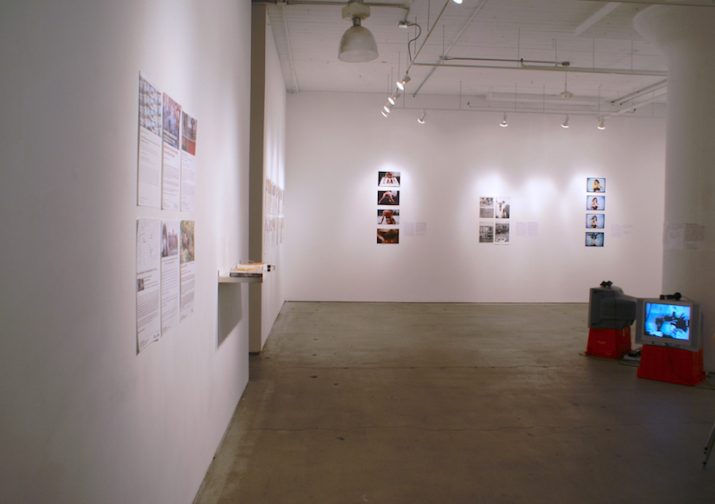
Slought in New York at ZONE: Chelsea Center for the Arts